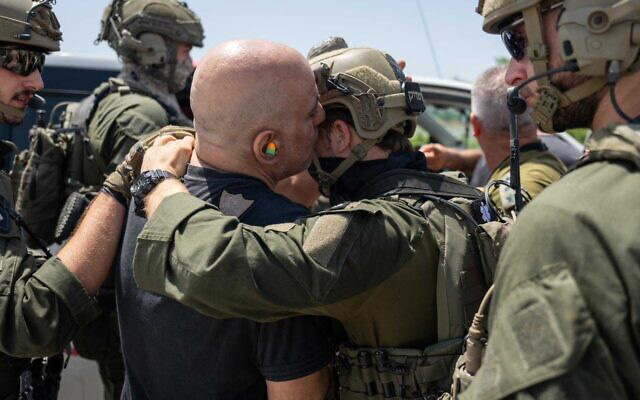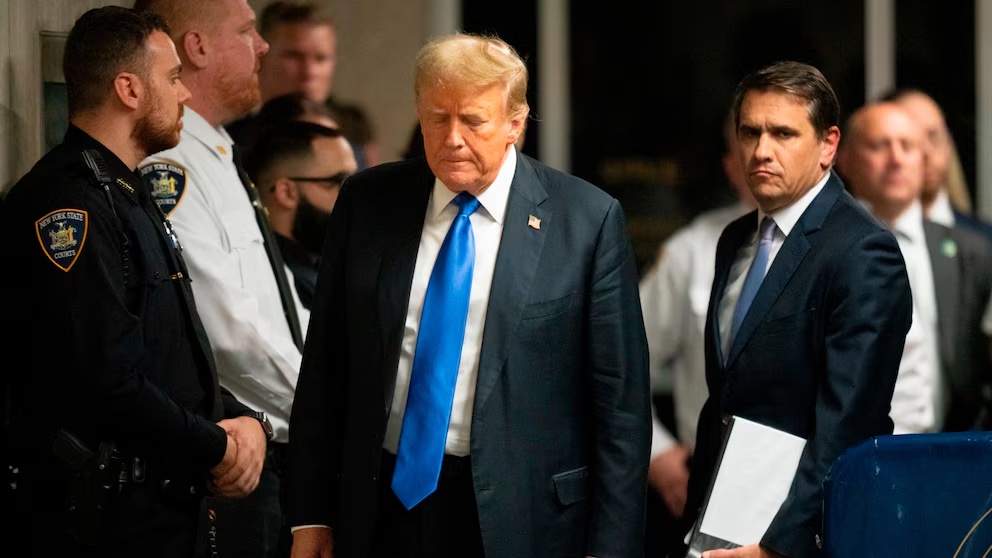
A Reuters photojournalist runs as Venezuelan National Guard soldiers charge during a protest outside the Supreme Court in Caracas on March 31, 2017. Several journalists have been injured covering the unrest. (AP/Ariana Cubillos).
This week, CNN and BBC Global News were shut down in Venezuela amidst violent outbreaks. This latest impingement on the freedoms of the Venezuelan people demonstrate that the freedoms we take for granted, the rights that we enjoy, are a fantasy to many in the world. While the media bloviates about how Trump is a threat to our republic, examination to what a true dictatorship does, versus what the left claims is a dictatorship, is warranted.
In February of 2017, President Trump called the “fake news media” the “enemy of the people”. In lieu of the introspection many in the media could have had as to why their credibility was decimated after their preferred candidate lost to a reality TV host, they decided that Trump’s rhetoric was the greatest threat in the world. CNN’s Brian Stelter referred to a poll of 51% of Republican’s agreeing with Trumps assessment as “an infection that’s spreading”. When a former Coast Guard officer was arrested for planning attacks on political and media figures, MSNBC’s Joe Scarborough claimed that he had knowledge that President Trump “is not disturbed by the news reports. He sees that as a sign of strength, a sign of passionate support.” The New York Times Andrew Higgins compared Trump to Stalin, and interviewed the great-granddaughter of Stalin’s successor, Soviet dictator Nikita Khrushchev, to essentially say that Trump was worse than Stalin. Joel Simon, executive director of the Committee to Protect Journalists, writing in Columbia Journalism Review, called Trump worse than Venezuelan dictator Hugo Chavez. CNN’s Chief White House Correspondent Jim Acosta is releasing a book entitled The Enemy of the People: A Dangerous Time To Tell The Truth In America. The Boston Globe organized a collected effort by more than 300 newspapers to write anti-Trump op-eds in their publications on the same day. Reporters Without Borders added the U.S. to the list of most dangerous countries in the world for journalists. This decision, they claimed, is based on the shooting in the Capital Gazette newspaper, who said “We won’t forget being called the enemy of the people”. (The shooter had no-discovered political motive, rather a personal animus against the paper). These are a small amount of countless examples of the media making the case that Trump is actively limiting the Freedom of the Press as guaranteed by the First Amendment. However, if that were true, there are numerous federal courts that would be delighted to slam an injunction on him. (A federal judge ruled in May 2018 that Trump was not legally allowed to block people on Twitter, which is both either too stupid about how Twitter works or lying about how the First Amendment works).
Trump’s rhetoric is just that; rhetoric. There have been no documented attempts at this point of the Trump administration actively trying to curb the freedom of the press. In fact, Politico editor-in-chief lauded Trump’s transparency. In a March article he wrote, “[Trump] arguably has the most frequent, most informal and most sustained personal interactions with reporters and commentators of any president since the days of Kennedy and [Benjamin] Bradley (Newsweek reporter)”. Trump, for all his rhetoric, is limiting his tactics to a battle of words, and for some reason, those who buy ink by the barrel are crying “uncle”.
Contrast this to the action by the Venezuelan government in recent years. In 2009, the Venezuelan government under Hugo Chavez committed “Radiocide” when they shut down 32 radio and 2 television stations. The 32 radio stations comprised of 40% of the radio stations in the country. In 2014, Columbian News Channel NTN24 was taken off the air. In 2017, after Trump made his first comments about the “fake news media are the enemy of the people”, CNN en Espanol, Todo Noticias out of Argentina, and El Temp, Caracol TV, and RCN Columbia out of Columbia were all taken off the air. This week, the government shut down CNN and BBC Global News.
Venezuela also has a history of physical violence against journalists. During the protests in April 2017, while American journalists were complaining about how mean President Trump was to them, the Committee to Protect Journalists issued the following advisory. “Local and international journalists covering the protests have been attacked, beaten, arrested and sprayed with tear gas, and have had their equipment confiscated and stolen. … Journalists covering the story told the CPJ that the authorities have been firing tear gas into the crowds at close range. … Local and international media have found it increasingly difficult to operate in Venezuela due to government obstruction. Police and armed pro-government gangs have detained, harassed and attacked journalists. Assaults have taken place in broad daylight, and pro-government gangs have stolen media equipment.” State authorities attacked approximately two dozen reporters between May 6th and May 20th, from physically beating them to stealing their equipment.
Most famously, on February 25th this year, Jorge Ramos of Univision and his crew were detained against their will during an interview with Dictator Nicholas Maduro that didn’t go the way Maduro liked. According to Ramos, after he offered to show Maduro a video of children looking for food, Maduro said the interview was over. At that point, their equipment was confiscated, and thrown into a room. When Ramos refused to hand over his cell phone, agents turned off the lights, came in the room and forcibly took it, along with his backpack. Then they forced Ramos and his producer Maria Guzman to give them the pass codes for their phones. After 2 hours, they were thrown out of the presidential palace. The 17 minutes of interview, and their personal belongings, were never returned.
As a reminder, CNN’s Chief White House Correspondent Jim Acosta is releasing a book entitled The Enemy of the People: A Dangerous Time To Tell The Truth In America.
A scenario similar to the one that Jorge Ramos endured occurring in the United States is unimaginable. When conservatives mock and malign the media for complaining about Trump’s rhetoric, this is the reality from which they speak. They speak of a reality where the freedom of the press is absolute. The freedom to criticize the press is equally absolute. The American press take that press for granted. It’s a tragedy that only through the suffering of another nation can they understand that.
Subscribe to A Hill With A View for articleas they are published
Follow Moshe Hill on Twitter @TheMoHill and Faceboook at facebook.com/ahillwithaview



